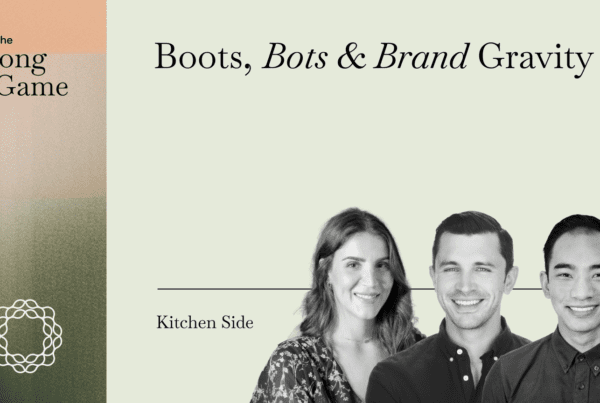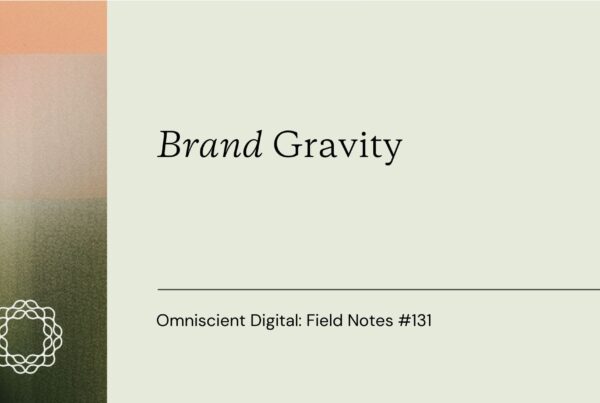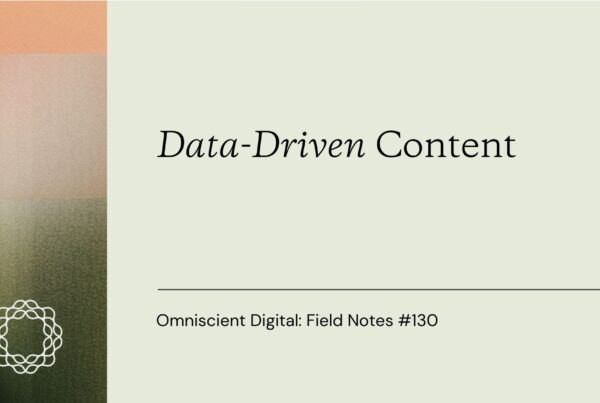On May 10th, Google announced a new version of their search product integrated with generative AI.

The waitlist for Search Labs is available now (with a personal Google account). Once rolled out, the Search Generative Experience (SGE) is anticipated to change the landscape of the traditional search engine results pages (SERPs) and impact organic content performance.
How we assume this will impact organic search—and some potential solutions:
- Organic results will share the SERP with generative AI responses. Typical organic results will be pushed down to make room for generative AI responses. The SGE will also surface more zero-click results. Less room in SERPs means more competition for broader, high-volume keywords, thus, we expect clickthrough rates and traffic to decrease.
- Solution: A sound strategy that aligns with the SERP intent will be crucial to success in organic search.
- Google’s “perspectives” approach will change SERPs. Content types included in SERPs will vary more. Video packs, image packs, social media results, and other brand-specific content will shape the “perspectives” approach Google is moving towards.
- Solution: A strong brand with a strong distribution framework across its owned channels will offer more opportunities to grab valuable real estate in SERPs.
- Content authorship will matter more, e.g., E-E-A-T. Original research, expert opinions, and data-driven content will be more important than ever. Deprioritizing misinformation or sterile content will be top of mind for Google as it seeks to provide accurate and helpful AI-generated answers.
- Solution: Offering unique, informational content with an authoritative voice will lend credibility to organic content and incentivize Google’s algorithms to prioritize it.
- Google may place more emphasis on off-page ranking factors. Backlinks have underpinned organic content performance through the thousands of algorithm updates Google rolls out each year. Ranking priority may continue to be assigned to organic results with more perceived authority. This increased emphasis will make backlinking more important than ever.
- Solution: Emphasize backlinking to maintain and improve domain ranking and authority.
How we assume this will impact paid search:
- Ads will hold prominence above the generative AI response. Snapshots of Google’s SGE mobile interface show up to two search ads appearing above the fold before the generative AI response.
- The Google Shopping experience will go deeper. Google maintains a massive database of over 35 billion product listings. SGE will leverage this database to guide a person through their buying decisions by offering product listings and informational content. This means organic content will play a role in informing the customer’s purchase decisions.
- Changes will be less drastic and much slower than organic. Ad revenue has accounted for over 80% of Google’s annual revenue since 2017. A review of their 2023 Quarterly Report (page 11) tells a similar story. Google won’t be in a hurry to pivot away from its biggest revenue driver any time soon. They will tread carefully when rolling out changes to the advertising environment.
Further considerations
It’s clear that Google is placing more emphasis on the experience their search product offers. They’re leveraging AI to help their users solve problems faster. They’re prioritizing expert opinions and sourcing data-heavy content to lend more authority to their generative AI responses, meaning they’ll eventually deprioritize sterile, AI-generated content devoid of brand voice or substance.
Google is in a race with OpenAI/Microsoft, and the pace of feature development has and will continue to accelerate. If the generative AI space is any signal, the SGE will see many changes and iterations over the following weeks and months.
There are unknowns that even the Google team won’t have answers to. Our focus on conversions and revenue insulates us from this change impacting the bottom line.
If anything, this is another reminder that Google/SEO is an earned channel. We have relatively little power over its algorithm, but we can adapt.
TL;DR: What Omniscient will do
As your partner in figuring this stuff out, you can expect us to:
- Share any new developments in Search AI via Slack or in our consulting check-ins
- Monitor and adjust our strategy to stay competitive
- Continue to produce and deliver research-driven, authoritative content
We’ll also help you reassess your broader marketing strategy by discussing opportunities to:
- Diversify your content portfolio beyond SEO. We believe the more insulated content will be nuanced with main points that can’t be quickly or easily summarized in bullet points or paragraphs. By including more thought leadership, product-led, sales enablement, etc., consumers will be drawn to read more (even after reading a summary).
- Cast a wider distribution net. Don’t exclusively rely on Google to distribute your content. Consider paid channels, social media, community, email, your sales team, and other channels at your disposal to drive awareness, traffic, and conversions.
- Strengthen your owned channels. Owned channels, such as email, community, podcast, etc., give you more control, and they’re unlikely to be impacted by changes in search behavior.
Ultimately, no one knows exactly what Google will do, and predictions are a fragile way of building strategy. It’s best to invest in preparedness for what’s to come (more thought leadership, branded/opinion-based content, etc.) and build a strategy that limits the downside and captures the upside here and now. These actions will help do just that.


